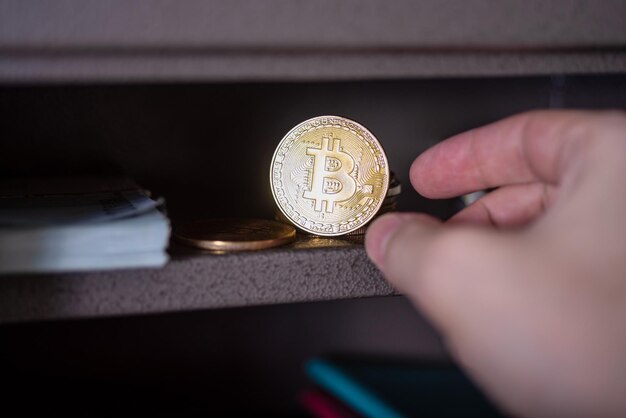Unveiling the Mystery: How Much Bitcoin Does the US Government Really Own?
Cryptocurrencies, particularly Bitcoin, have taken the financial world by storm. As with any significant economic phenomenon, governments worldwide, including the United States, have found themselves intertwined with Bitcoin in various ways. It prompts a fascinating question: How much Bitcoin does the US government really own? In this exploration, we’ll dive into the intriguing relationship between the US government and Bitcoin, offering insights into how this digital asset fits into broader economic and regulatory contexts.
The Origins of Government Bitcoin Ownership
How Does the US Government Acquire Bitcoin?
Unlike traditional financial institutions that invest directly in cryptocurrencies, the US government typically acquires Bitcoin through law enforcement activities. When illegal activities powered by cryptocurrencies are shut down, such as online drug marketplaces, the Bitcoin holdings of these entities are often seized. These cryptocurrencies may eventually be auctioned off to the public, contrasting with a direct strategy of investment or accumulation.
Notable Bitcoin Seizures
A prominent example is the Silk Road case, an online black market that was famously shut down by the FBI. This operation led to the seizure of approximately 144,000 bitcoins at the time. Additionally, other criminal investigations and operations have led to further seizures, cumulatively contributing to the government's cryptocurrency portfolio at various times.
Auctioning Seized Bitcoin
The Auction Process
Once cryptocurrencies are seized, they are not added permanently to government reserves. Instead, these bitcoins are usually auctioned, a process that removes them from government ownership, distributing them back into the private sector.
- Announcement of Auctions: These auctions are publicly announced and managed by agencies such as the US Marshals Service.
- Registration and Bidding: Participants register to bid, often requiring a significant deposit.
- Final Sale: The highest bidder gains ownership of the cryptocurrencies, transferring them out of government custody.
By holding auctions, the government can recoup substantial…sums while maintaining transparency.
Impact on Bitcoin Market
Every auction impacts the broader Bitcoin market. Large bidders could potentially acquire thousands of bitcoins, influencing market dynamics. Similarly, the public announcements of these auctions generate interest and can affect Bitcoin prices temporarily.
The Regulatory Landscape
Why Does the Government Admit to Owning Bitcoin?
The US government does not actively seek to own Bitcoin in the traditional sense. Its ownership typically results from judicial processes aimed at curtailing illegal activities. Transparency is crucial in these cases, as auctions ensure that the public understands the disposition of seized assets.
Oversight and Regulation
As cryptocurrencies continue to evolve, so does governmental regulatory oversight. Agencies like the Securities and Exchange Commission (SEC) and the Commodity Futures Trading Commission (CFTC) increasingly involve themselves in understanding and regulating digital finance ecosystems. This oversight ensures that cryptocurrencies' usage aligns with existing financial laws and protects the broader economic infrastructure.
The Role of Government in Bitcoin’s Future
Should the US Government Invest in Bitcoin?
There's ongoing debate about whether the US government should take an active investment role in Bitcoin. Proponents argue that diversifying reserves with digital assets could future-proof national holdings. Conversely, critics suggest that government involvement could undermine Bitcoin's decentralized ethos and potentially disrupt market equilibria.
Potential Benefits
- Diversification: Holding digital assets could strengthen national financial resiliency against inflation or fluctuations in traditional fiat currencies.
- Technological Leadership: Embracing cryptocurrencies might position the US as a leader in the evolving financial landscape, fostering innovation.
Potential Drawbacks
- Market Influence: Government holdings could impact market dynamics and investor confidence.
- Political and Regulatory Implications: Direct ownership might necessitate new regulations, influencing Bitcoin’s domestic and international perception.
Summary: Key Takeaways and Consumer Tips
🗝️ Government Bitcoin Ownership: Primarily results from legal actions and is temporarily held until auctioned.
📊 Impact on Market: Auctions can affect Bitcoin market conditions and prices, so staying informed is beneficial for investors.
🏛️ Potential Future Role:
- Government could play a part in reinforcing national economic stability.
- Regulatory integrity remains crucial for broader acceptance of cryptocurrencies.
🔍 Consumer Insights:
- Understanding government involvement offers a unique perspective on Bitcoin's evolution.
- Potential investors should monitor regulatory changes, as they may affect market dynamics.
Navigating the Unknown
The relationship between the US government and Bitcoin remains a complex and evolving narrative, reflecting broader shifts in finance and technology. While the government primarily encounters Bitcoin through law enforcement actions, its position as a key player in cryptocurrency regulation is undisputed. As digital assets continue to grow in importance, how governments manage, regulate, and potentially invest in these assets will shape their future.
By exploring these facets, readers can gain a clearer understanding of where the intersection of government policy and cryptocurrency might lead, preparing themselves for the developing landscape of digital finance.

